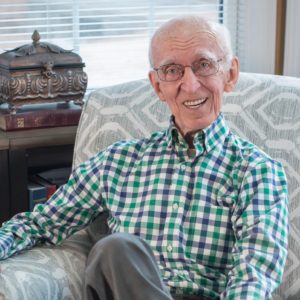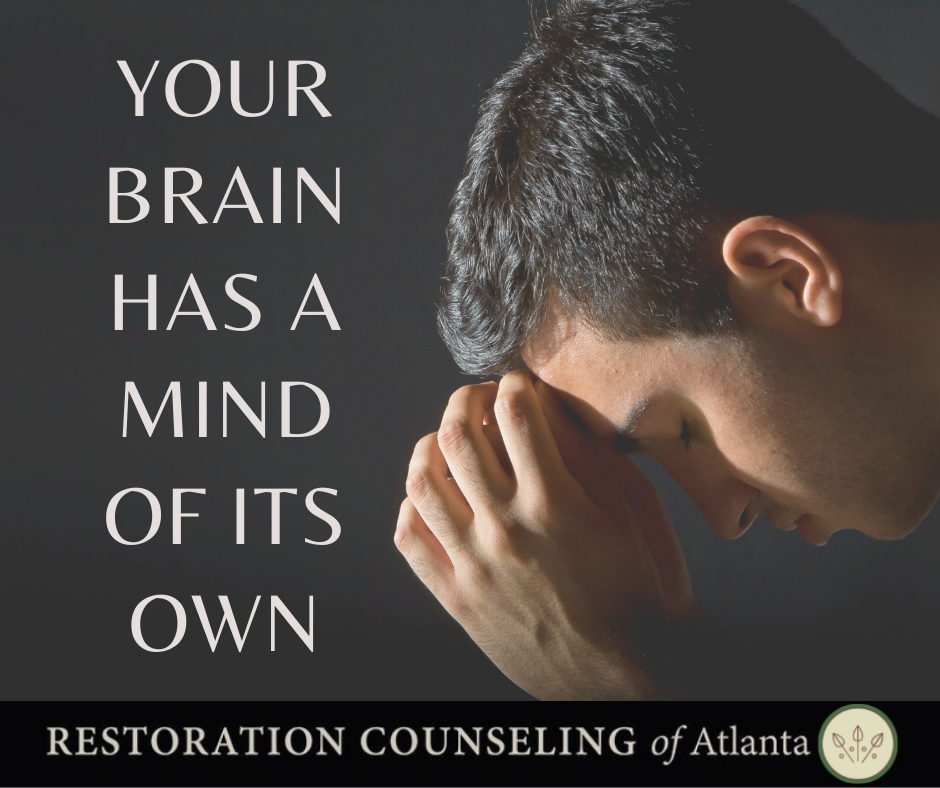Discussions of God’s existence frequently arrive at the observation that it’s not likely that something so ordered and so complicated as the universe and all that’s in it could have come into existence because a tiny, dense fireball exploded in the middle of nowhere 14 billion years ago and just growed like Topsy. The argument opposing the Big Bang is that our existence points to the presence of an infinite creative intelligence possessed of true superpower.
Members of the creative intelligence persuasion will be pleased by the findings of research led by Andrew Newberg, a physician and neuroscientist at the University of Pennsylvania. Newberg’s study of the effects of prayer and meditation combined with the expectation of improved brain function indicates that prayer and meditation lead to what Alcoholics Anonymous calls conscious contact with God. Moreover, it would seem that our central nervous system was designed for exactly that. To provide us with awareness of God’s presence, allowing us to experience the promises of Christ.
Years of counseling alcoholics and substance abusers have taught me that what drives addiction are feelings of fear and unhappiness. Substance use creates false security and artificial joy. Addicts are persons who have incorrectly learned that all the behaviors that comprise addiction remove distress and pain. Those who finally come to counseling have discovered what they learned is incorrect.
The fact is that the learned paradigm we call addiction actually prevents the brain from making conscious contact with God as the addict settles for a cheap knock-off instead of going after the real thing which Scripture calls the true desire of our hearts. Learning the mechanics of any new behavior calls for a degree of awareness as the student pays attention to the details of a new task. Most of us recall learning to drive a car and thinking we will never remember all the details nor hope to learn them with a parent sitting beside us shouting at us to pay attention to what we’re doing. Add to this the question, are you trying to kill both of us and the student may never learn to drive but learn to be afraid to drive a car instead.
However, by paying attention and systematically repeating the actions, we discovered that less attention was needed. Today, we get behind the wheel and drive off without giving a thought to the intricacies involved. The behavior has become a habit. That is, an automatic response we are not likely to forget so long as we continue indulging it. Even when the habit has been suspended for a long time and we seem to have forgotten, like riding a bicycle, we discover with a few trials the memory returns. For this reason, addicts cannot return to occasional use of the substance even after years of abstinence.
The addict has also learned a complex of thoughtless, habitual thoughts, feelings, and actions which he has repeated until he is no longer aware of doing so. All learned behaviors are functions of our brains whether we are conscious of the process or not. When the brain is performing without our conscious intent we say your brain has a mind of its own.
Recovery from addiction calls for a number of elements:
- Awareness of the habit(s)
- Discontinuing the old habits to avoid reinforcement
- Identification of alternative behaviors
- Repetition of the new behavior until it becomes a habit
Newberg’s research using fMRI imaging of the brains of Franciscan nuns and Buddhist monks as well as subjects without contemplative experience has shown that certain areas of the brain become active when the subjects engage in prayerful meditation. Moreover, the activation of certain areas of the brain especially when those areas are linked and form a circuit of activity is concurrent with what we attribute to the presence of God. A significant reduction in feelings of anxiety and anger is observed. Subjects experience an overall sense of emotional balance and peace of mind. This is accompanied by an increased clarity of thought with greater empathy and compassion for the suffering of others. Christ in you, the hope of glory. Wellness.
The principal difficulty encountered by the newcomer to meditation is the difficulty maintaining focus. The brain which has already learned a preferred addictive agenda persists in distracting him by wandering off. And so the initial goal of meditation is training the brain to remain focused. In order to accomplish this level of quiet focus, the subject needs to follow a daily, consistent, and disciplined practice under guidance. This practice should be adhered to without omitting days and without departing from the established routine or schedule.
It is at this point the addict’s brain may announce I don’t want to do that. At this point we encounter resistance, another therapeutic issue that can easily be glossed over while trying to convince the addict that he should want to meditate or that meditation really works, and he should do it even though he doesn’t want to. The addict whose brain is saying he doesn’t want to meditate may be saying I don’t want to get well.
The research predicts the effectiveness of meditation. However, it appears the effectiveness is contingent upon the expectation of wellness on the part of the addict. Such an expectation implies a desire for change. The elements of expectation and desire are components of faith. For this reason, anyone presenting with a substance abuse issue should be prepared to be asked two important questions.
Do you want to be healed? Do you expect to be well?
When it comes to important questions the one I most often hear from clients as we explore the mechanics of one diagnosis or another is this: okay, now how do I fix this? It’s not about fixing things. It’s about changing your brain, and the renewal of the mind through prayer and meditation.
After that, the good stuff just happens. As my friends in AA say, It works if you work it.

Written by: Patrick Caffrey, LPC
Roswell Location
pat@restorationcounselingatl.com, ext. 114
Patrick counsels adults who struggle with alcoholism and other forms of substance abuse, as well as related family issues. These include adult children of alcoholics (ACOA) and persons who are codependent. Pat has also written and published three books addressing the subject of addiction. His books are available through www.amazon.com or may be purchased at the Roswell office.

